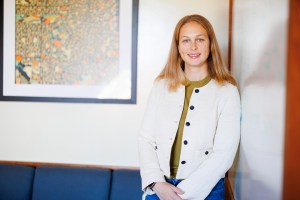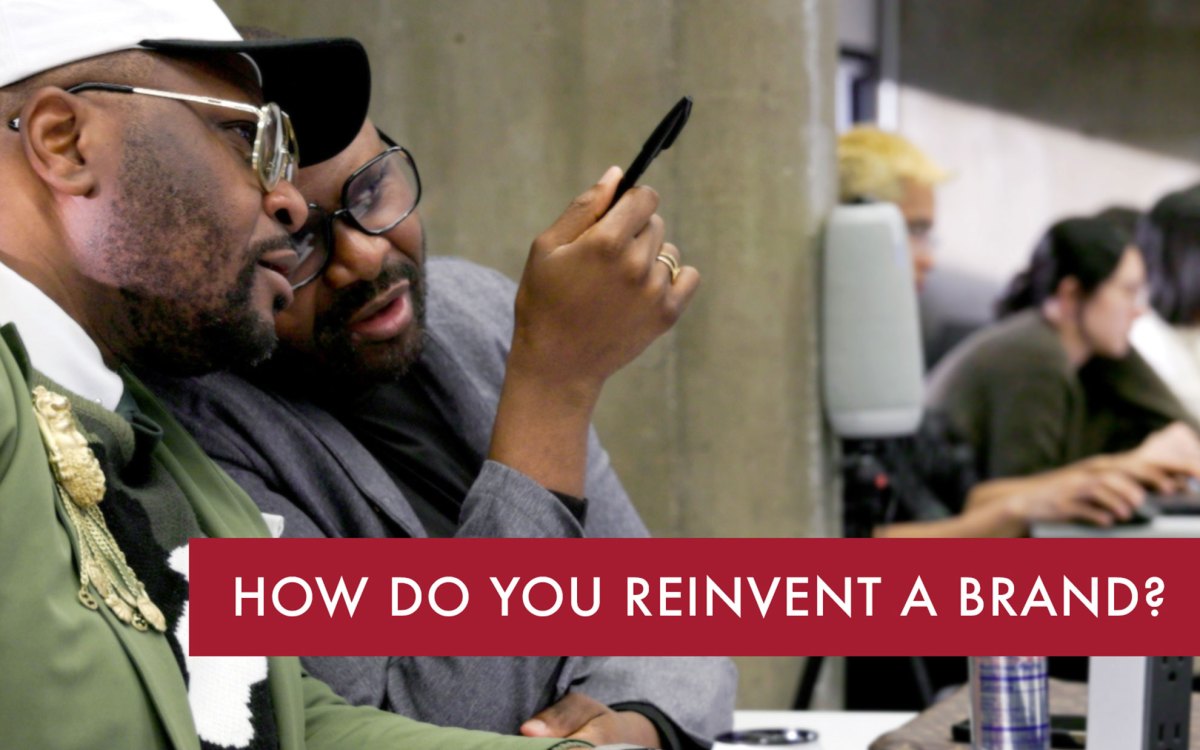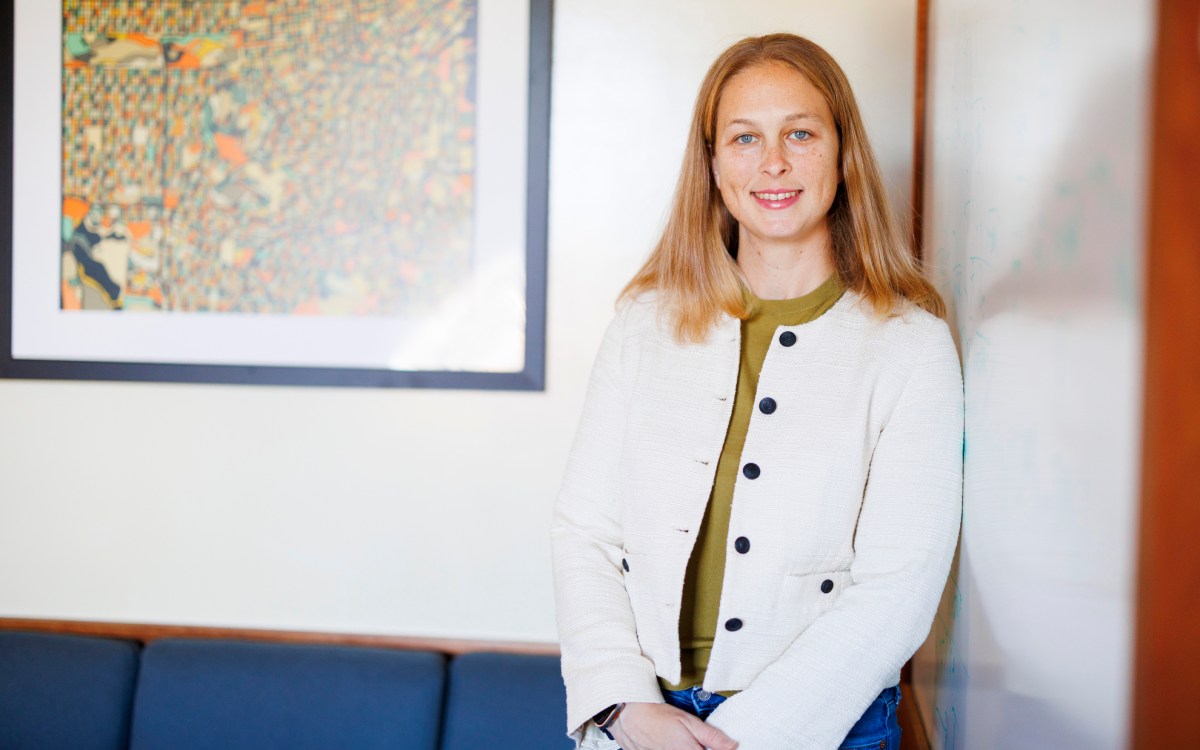Stantcheva awarded Clark Medal
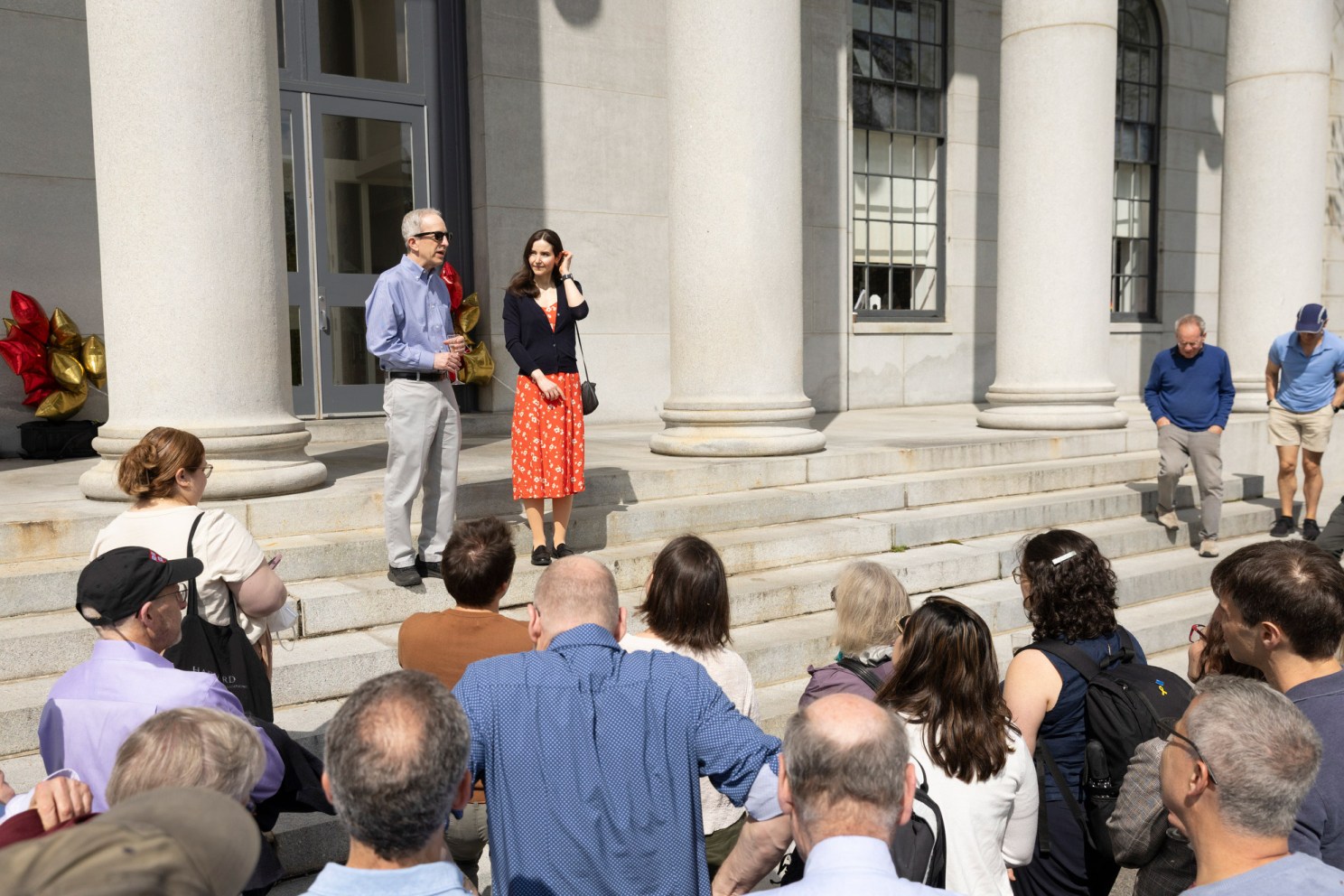
Lawrence Katz, Elisabeth Allison Professor of Economics (left), during a celebration honoring Stefanie Stantcheva, winner of John Bates Clark Medal.
Photos by Niles Singer/Harvard Staff Photographer
Honored as a leading under-40 economist for pioneering insights on tax policy, innovation, behavior
Harvard’s Stefanie Stantcheva has been awarded the American Economic Association’s 2025 John Bates Clark Medal, an annual prize recognizing an under-40 economist for significant contributions to the field.
“I’m incredibly honored, truly humbled, and very grateful for this award,” Stantcheva, the Nathaniel Ropes Professor of Political Economy, said Tuesday during a department celebration with colleagues and students.
In announcing the award, the association praised Stantcheva for exploring questions in public finance and producing new insights on tax policy and its impact on economic behavior.
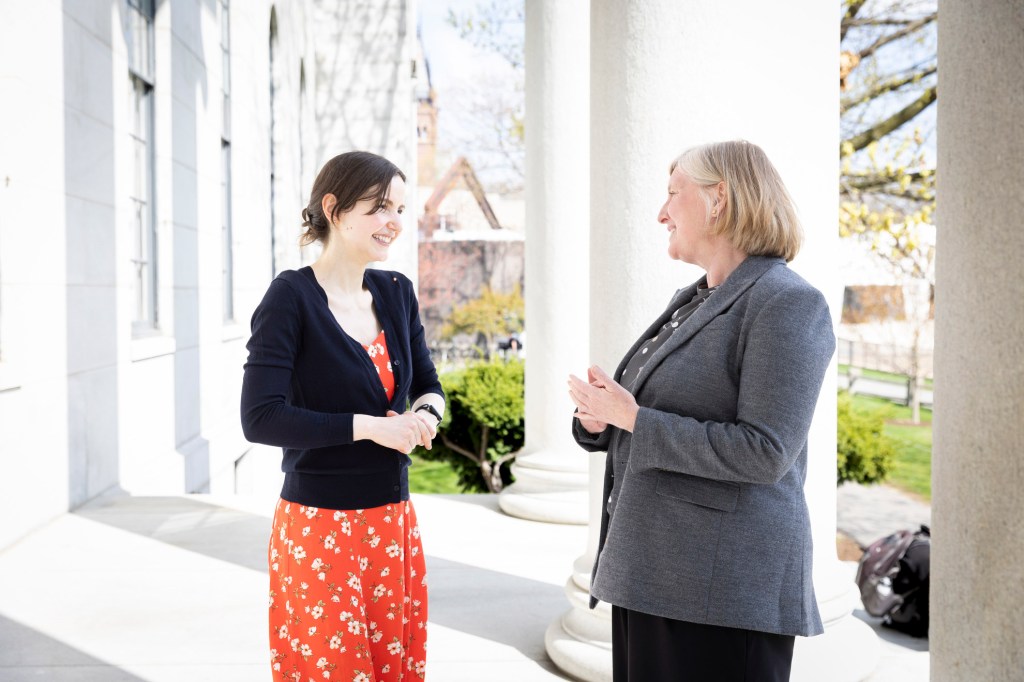
“The tax system is something so powerful that can essentially make or break an economy,” Stantcheva said. “It can either encourage things like innovation — if it’s properly designed — or really discourage economic activity.”
In their 2022 paper, “Taxation and Innovation in the 20th Century,” Stantcheva and her co-authors found that innovation responds to changes in tax policy with high elasticity. The study also revealed that higher taxes have a negative effect on the quantity of innovation but not the quality of inventions.
“Stefanie’s important contributions to the field make her so deserving of this award,” said Hopi Hoekstra, Edgerley Family Dean of the Faculty of Arts and Sciences. “It’s wonderful to celebrate her alongside her colleagues, including several past winners, which speaks to the continued strength of this department.”
“We’ve been extremely lucky this year, but not surprised at all that Stefanie got it,” said Elie Tamer, Louis Berkman Professor of Economics and chair of the Economics Department. “She has done stellar work and we’re very proud. It’s a happy day for Harvard and Harvard economics in particular.”
Stantcheva founded the Social Economics Lab in 2018. Her recent work has tackled issues in trade, immigration, climate change, and social mobility.
“I am excited to continue the work at the Social Economics Lab to better understand how people think about economic issues and policies,” Stantcheva said. “We are currently exploring new topics — such as the interplay between emotions and policy — and key mindsets, such as zero-sum thinking.”


